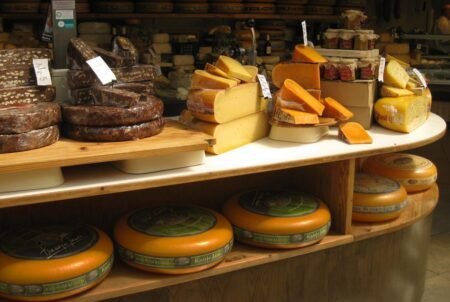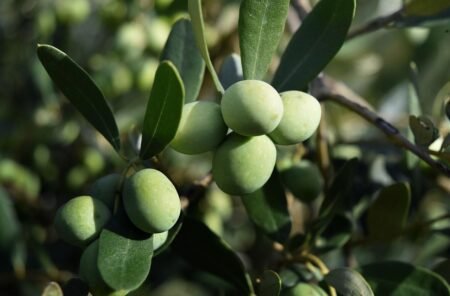The European Commission presented on 22 April the outcome of its review of the decision-making process for the authorisation of Genetically Modified Organisms (GMOs) as food and feed.
Advertisement
What is this package about?
The Commissions package on GMOs derives from the Political guidelines on the basis of which the Commission was elected. In these guidelines, a commitment was taken to review the legislation applicable to the authorisation of GMOs.
The package adopted on 22 April 2015 by the Commission delivers on this political mandate. It comprises the following documents:
- A Commission Communication reviewing the decision-making process on genetically modified organisms; and,
- A proposal for a Regulation allowing Member States to restrict or prohibit the use of GMOs for food or feed purposes in their territory.
What is the context of this review?
The decision-making process: respective roles of the Commission and of the Member States in the EU procedure of authorisation
The EU legal framework on GMOs provides that no GMO or genetically modified food and feed can be placed on the market before it has been granted an authorisation in accordance with that legal framework. To this end, a scientific assessment is performed by the European Food Safety Authority (EFSA), in cooperation with the scientific bodies of the Member States.
Where the results of the risk assessment show that the product does not pose a risk to health or to the environment under the proposed conditions of placing on the market/use, the Commission submits to the Member States, represented in the Standing Committee, a draft implementing decision of authorisation, in accordance with the procedure set out in Regulation (EC) No 182/2011 (comitology procedure). Under this procedure, Member States vote under the qualified majority defined in the Treaty.
In the Standing Committee, if Member States vote Yes, the Commission adopts the draft decision. If they vote No, or if the result of the vote is No opinion (no qualified majority either in favour or against is expressed), the Commission may submit the draft decision to another body representing the Member States at a higher level: the Appeal Committee.
In the Appeal Committee, the Member States vote a second time on the draft decision tabled by the Commission. If the Member States vote Yes, the Commission adopts the draft decision. If they vote No, the Commission cannot adopt the draft decision. If the result of the vote is No opinion, the Commission is required by the GMO legal framework and by the Charter of Fundamental Rights to adopt a decision on the application so, in practice, has little choice but to give the authorization.
How do Member States actually vote on authorisations?
Since the entry into force of the EU legal framework on genetically modified food and feed, the results of the votes in Standing and Appeal Committees have systematically been no opinion, whether the authorisation was for cultivation or GM food and feed. The final decision on authorisations is therefore always left to the Commission at the very end of the procedure. This situation of repeated no opinion results is unique compared to the thousands of implementing decisions adopted via comitology every year, where the Member States generally support the Commissions draft decision in the Standing Committee stage.
As regards genetically modified food and feed, the voting patterns show that there are generally more Member States supporting the draft decision than opposing it. The reasons invoked by Member States to justify their abstentions or negative votes are sometimes scientific in nature, but in majority of the cases are based on other considerations, reflecting the societal debate in their country.
Currently, the legal framework on genetically modified food and feed does not allow Member States to express all of their individual concerns, in what is an area of high public interest.
Are there GMOs in the food and feed chain in the EU?
Yes. To date, there are 58 genetically modified food and feed authorised in the EU (see EU register of genetically modified food and feed).
The number of GM food products actually available on shelves is limited. This may be the result of the labelling requirements for GM food and the availability of non-GM alternatives.
The situation is different when it comes to the GM feed sector. There is a substantial market for GM feed in the EU: more than 60% of the EUs needs in vegetable proteins for cattle are met through imports of soya and soymeal from third countries where GMO cultivation is widespread.
What are the conclusions of the review? Why is it proposed to amend the Regulation on genetically modified food and feed?
The Commissions Communication outlines the different elements which need to be considered in that context and confirms the need to adapt the GMO legal framework to allow for a better expression of national governments views on the use of GMOs.
In March 2015, the Council and the Parliament agreed on an amendment of the GMO legal framework to allow Member States to restrict or prohibit the cultivation of authorised GMOs (Directive 2015/412/EU). The Communication concludes on the need to extend this solution to genetically modified food and feed.
To this end, a proposal is made to the European Parliament and to the Council to amend Regulation (EC) No 1829/2003: while the authorisation process will not be amended, Member States will be given decisional power regarding the use of genetically modified food or feed on their territory.
What is the legislative proposal about?
What are the main elements of the legislative proposal?
The Commission proposes to amend the Regulation on genetically modified food and feed, to allow Member States to adopt national decisions restricting or prohibiting the use in food or feed of GMOs, after they have been authorised at EU level (opt-out measures).
Member States would have to justify that their opt-out measures are compatible with EU law and the principles of proportionality and non-discrimination between national and non-national products. However, they are not allowed to use justifications which conflict with the assessment of risks to human and animal health and the environment carried out by the European Food Safety Authority (EFSA). Indeed, the proposal should not alter the uniform level of safety ensured by the EU-wide assessment. In addition, in case new evidence that the product could pose a severe risk to health or to the environment are identified, the EU legal framework already contains provisions allowing Member States to ban a genetically modified food and feed pending an EU review of the situation.
These measures would have to be communicated to the Commission and to the other Member States before adoption, and the Commission and the other Member States would have 90 days to comment, if appropriate.
Where genetically modified food and feed was already used at the time a Member State adopts an opt-out measure, the proposal foresees that operators should be provided a reasonable period of time to exhaust the stocks of this product. Furthermore, the measures should not target products in which an adventitious presence of EU-authorised GMOs below the labelling threshold set out in the legislation is found.
Are opt-out measures adopted by Member States compatible with the internal market and WTO obligations?
The measures adopted by Member States need to be compatible with the internal market, in particular Article 34 TFEU, which prohibits measures of equivalent effects to quantitative restrictions to the free movement of goods. That is why the Member States making use of this proposal will need to justify the measures taken based on grounds in accordance with Article 36 TFEU and the notion of overriding reasons of public interest, as developed by the case-law of the Court of Justice. In addition, the measures envisaged will need to be compatible with the principles of proportionality and non-discrimination between national and non-national products.
More generally, Member States’ measures will have to be consistent with Union law and the EU’s international obligations- of which the EU’s WTO obligations are an integral part.
Will the scientific assessment of GMOs be impacted by this proposal?
No. The proposed amendment to the Regulation on genetically modified food and feed does not impact on the risk assessment carried out on GMOs prior to their authorisation, nor does it affect the level of safety which is fixed for all the Member States in the decision of authorisation, and which takes dues account of the precautionary principle.
Member States are allowed to adopt opt-out measures once the GMO is authorised at EU level and these measures cannot be justified by reasons which conflict with the risk assessment carried out by EFSA, but need to be based on different considerations. Indeed, the legal framework currently foresees procedures for cases where it appears that a product presents a severe risk which was not addressed during the authorisation procedure. In such a context, the Commission and the Member States are already granted the possibility to adopt emergency measures which may lead, if appropriate, to the prohibition of the product on the territory of a Member State, or part of it, or on the whole EU.
It should be stressed that a Commission implementing Regulation was adopted in 2013[4] to reinforce and improve the risk assessment and risk management process for GMOs for food and feed use, in particular by clarifying the scientific data requirements for submitting a GMO application.
Why does the legal proposal exclude GMO for cultivation?
GMOs for cultivation are excluded from the scope of the proposal because that they are already covered by Directive (EU) 2015/412, which was recently adopted by the European Parliament and the Council.
That Directive is based on the same principles as the current proposal: it offers the possibility for Member States wishing to restrict or prohibit GMO cultivation on their territory without affecting the EU risk assessment.
What are the next steps?
This legislative proposal will be sent to the European Parliament and the Council as well as to the Economic and Social Committee and the Committee of the Regions, which will consider it in the context of the ordinary legislative procedure.
For more information







